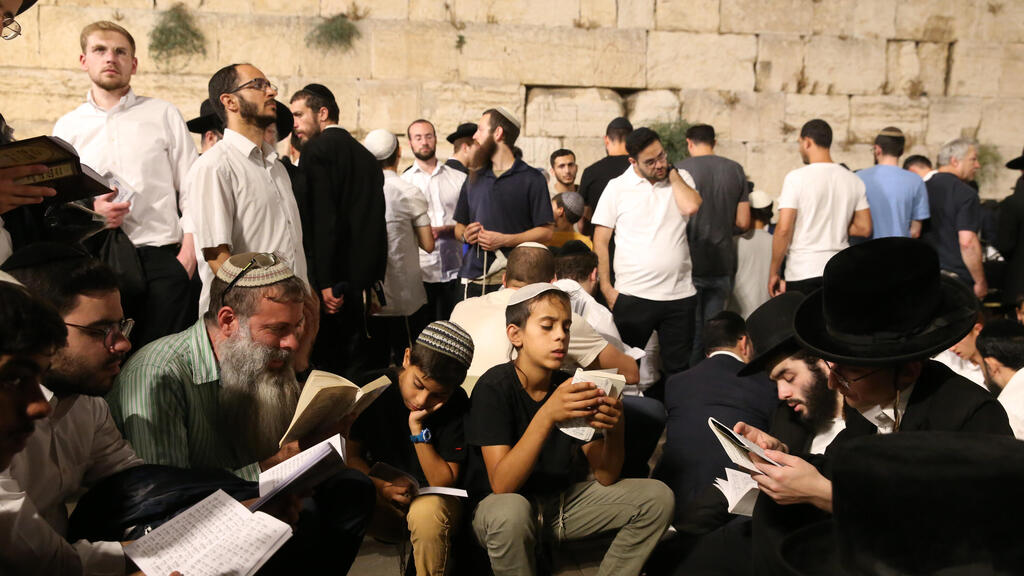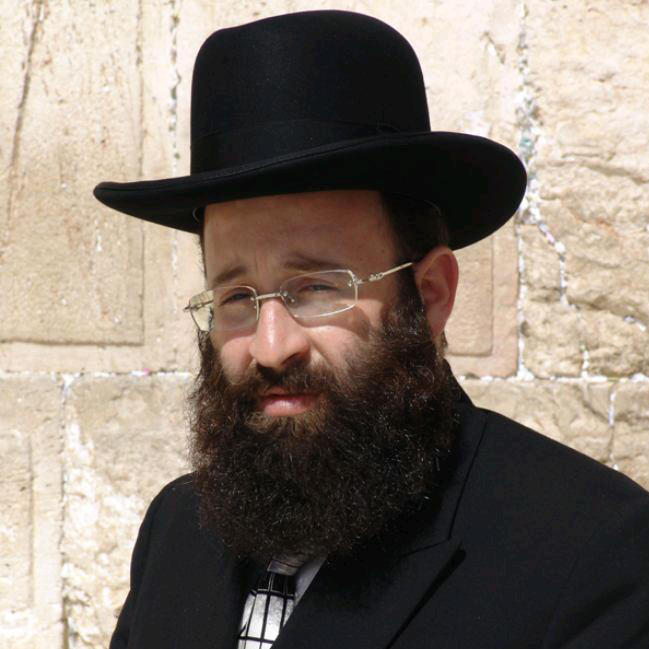On the night of Tisha B'Av, the Western Wall Plaza is enveloped in a unique atmosphere. Thousands of men and women come to the plaza throughout the evening and night, sitting by the ancient stones and lamenting the destruction of the two Temples. To an observer from the outside, the worshippers seem as though they are mourning something that happened to them personally, not events that occurred thousands of years ago. The memory of the Temple burns like flames, the memory of the destroyed Jerusalem and the exile that followed – these memories live and burn in our hearts on this night.
2 View gallery


Reciting the Book of Lamentations at the Western Wall on Tisha B'Av
(Photo: Amit Shabi )
Naturally, it was expected that Tisha B'Av, the day of destruction, would be a day when the mourners of Zion would express their pain, sorrow and anger toward the destroyers of the Temple – the Babylonians and the Romans. However, our ancient sages chose instead to point the accusing finger inward, toward their own hearts and ours. They posed the deeper question: "Why was the Temple destroyed?" What was the spiritual flaw that led to the destruction of the house in which the Blessed be He chose to dwell?
The sages answer that the First Temple was destroyed due to three grave transgressions but, despite all that, it was rebuilt within 70 years. In contrast, the Second Temple was destroyed due to one sin, and yet it has remained in ruins for over 2,000 years. What is that terrible sin from which the Temple failed to recover? It is the sin of baseless hatred, the hatred of brothers that has accompanied us as a shadow from the days of Cain and Abel, Joseph and his brothers.
The sages of Israel, throughout generations, respected and encouraged disagreement, establishing that "there are 70 faces to the Torah." The Mishnah and the Talmud, the foundational books of the Oral Torah, are based on the debates among the sages, from which sharp opinions emerge and halacha, or Jewish law, is clarified. But woe to those who turn disagreement into war. Woe to those who cannot distinguish between lack of agreement and hatred. Woe to them – and woe to all of us.
For many months, the streets of Israel have been filled with tension. These are days of intense, true and necessary clarification of various deep questions. But it is symbolic that these days are reaching their peak precisely during the days of Bein HaMetzarim (between the straits), which remind us in the most explicit way of the great danger threatening us. Heaven forbid that we listen to the counsel of the evil inclination and turn the clash of opinions into a war between brothers.
During these days, as we mourn the destruction of the Temples and ask ourselves how and when we will merit to build the Third Temple, we should remember that the path to the Third Temple does not pass through architectural plans or military maneuvers, but through one path only—unconditional love. As Rabbi Avraham Yitzchak HaCohen Kook, the first Ashkenazi Chief Rabbi of Israel, said: "And if we were destroyed and the world was destroyed with us due to baseless hatred, we will rebuild, and the world will be rebuilt with us through unconditional love."
Rabbi Shmuel Rabinowitz is the Rabbi of the Western Wall and Holy Sites


